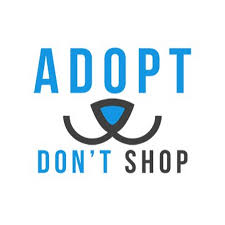Stance
Ethics
Is AI making people less intelligent?
The debate over whether AI is making people less intelligent centers on how intelligence is being redefined...
17 Arguments
108 Votes
6 Discussions
A dynamic platform for structured debates, insightful discussions, and rewarding opportunities. Join the conversation now!

Join Versy, the structured debate platform where you can explore daily debates, challenge your intellect, and grow through engaging discussions. Whether you are a beginner or a seasoned debater, our platform provides the perfect space to sharpen your reasoning and connect with like-minded individuals.
Discover and explore engaging topics on Versy, ranging from technology and politics to education and society. These curated topics are designed to spark thought-provoking debates and encourage intellectual engagement. Join the conversation and dive into discussions that interest you most.

Present your arguments and let the community shape the discussion! Gain votes, join discussions, and get feedback to refine your ideas. Every argument counts—debate smarter!

Stance
Ethics
The debate over whether AI is making people less intelligent centers on how intelligence is being redefined...
17 Arguments
108 Votes
6 Discussions
Free-Form
Psychology
Are New Year’s resolutions a powerful tool for self-improvement, or are they simply habits waiting to be...
15 Arguments
52 Votes
3 Discussions
Policy
Ethics
Artificial womb technology—often referred to as ectogenesis—originated as a scientific idea in the early 20th century, proposed...
13 Arguments
85 Votes
12 Discussions
Stance
Climate Policy
The debate over whether the annual UN Climate Conferences — known as the COPs (Conferences of the...
13 Arguments
104 Votes
19 Discussions
Free-Form
Ethics
The debate over whether sex workers or consumers should be penalized reflects long-standing tensions between morality, law,...
12 Arguments
73 Votes
7 Discussions
Policy
Morality
Some lives are morally more valuable than others is a debate that cuts to the core of...
12 Arguments
53 Votes
2 Discussions
Discover the most engaging debates currently trending on Versy. Explore popular topics that spark intellectual discussions and connect with a global community of debaters. Stay updated with the latest discourses that matter.
Unlock exclusive debates by contributing six arguments! Challenge yourself, explore new perspectives, and dive into deeper discussions.
Join Sponsored Debates, share your insights, and win exciting prizes! Top debaters share the prize pool, varying with each debate.
I really love this site. I'm especially happy about the community debates, I love that we can ask our own questions to the community and share what we care about through those questions.
Landon Cleary
@Landon Cleary
Whoever runs Versytalks, they are very kind people for giving all those great organizations big and small opportunities to speak up. I've grown to enjoy supporting them and I even enjoy helping by giving any winnings I get to the organizations. Especially my favorite ones that host here.
Mary Beth Clemons
@Mary Beth Clemons
VersyTalks’ website promotes intelligence, curiosity, listening, and diversity of opinion. I regularly immerse myself in it to take the pulse of evolving ideas, highlighting the important social role this site must play. It forces us to think more carefully about our personal positions.

Francine
@Colonna
In a digital community often filled with negativity, VersyTalks is a safe haven where you can freely share your ideas. Everyone there is understanding and kind about your thoughts. If you're looking for a place to debate without fear of being bullied,VersyTalks is the place to be.

Angel Britonney Adams
@Angel Britonney Adams
If you want to meet people that share the same thoughts and ideas that you do, I highly recommend Versytalks.
Colton Bloss
@Colton Bloss
I’ve been on VersyTalks for some time and I love how it gives me fresh angles on issues. The platform feels warm, honest, and curiosity-driven. It’s made me rethink a lot of my opinions in the best way possible.

Rishabh Giri
@rishabhgiri1991
I seriously have got to say this site is amazing, the debate on whether or not glue traps should be illegal is my favorite debate, and I'm so happy that so many people are in favor of banning them.

CoolColdTv
@CoolColdTv
I operate the DSA Non Profit and had the honor of hosting a sponsored debate with VersyTalks. Over the months, I’ve met so many people who share a heart for the non-human animals we live with. It’s great to be on a platform where empathy and compassion are appreciated.

Tabby
I love VersyTalks because I was able to meet kind-hearted and like-minded people who share my passion for animal welfare.

Angelina Reaska
@Angelina Reaska
I really love this site. I'm especially happy about the community debates, I love that we can ask our own questions to the community and share what we care about through those questions.
Landon Cleary
@Landon Cleary
Whoever runs Versytalks, they are very kind people for giving all those great organizations big and small opportunities to speak up. I've grown to enjoy supporting them and I even enjoy helping by giving any winnings I get to the organizations. Especially my favorite ones that host here.
Mary Beth Clemons
@Mary Beth Clemons
VersyTalks’ website promotes intelligence, curiosity, listening, and diversity of opinion. I regularly immerse myself in it to take the pulse of evolving ideas, highlighting the important social role this site must play. It forces us to think more carefully about our personal positions.

Francine
@Colonna
In a digital community often filled with negativity, VersyTalks is a safe haven where you can freely share your ideas. Everyone there is understanding and kind about your thoughts. If you're looking for a place to debate without fear of being bullied,VersyTalks is the place to be.

Angel Britonney Adams
@Angel Britonney Adams
If you want to meet people that share the same thoughts and ideas that you do, I highly recommend Versytalks.
Colton Bloss
@Colton Bloss
I’ve been on VersyTalks for some time and I love how it gives me fresh angles on issues. The platform feels warm, honest, and curiosity-driven. It’s made me rethink a lot of my opinions in the best way possible.

Rishabh Giri
@rishabhgiri1991
I seriously have got to say this site is amazing, the debate on whether or not glue traps should be illegal is my favorite debate, and I'm so happy that so many people are in favor of banning them.

CoolColdTv
@CoolColdTv
I operate the DSA Non Profit and had the honor of hosting a sponsored debate with VersyTalks. Over the months, I’ve met so many people who share a heart for the non-human animals we live with. It’s great to be on a platform where empathy and compassion are appreciated.

Tabby
I love VersyTalks because I was able to meet kind-hearted and like-minded people who share my passion for animal welfare.

Angelina Reaska
@Angelina Reaska
Get quick answers about VersyTalks debate platform, features, rewards, and how to start debating today.
VersyTalks is a structured online debate platform where you can join debates, present arguments, vote on discussions, and receive feedback from the community. Track your progress and refine your critical thinking skills through engaging, respectful discourse.
Yes! Our 1-on-1 Arena lets you debate head-to-head against another debater through structured rounds—Opening, Rebuttal, and Closing. Choose your position, follow timed rounds, and compete in organized debates modeled after competitive formats like Lincoln-Douglas, all done asynchronously.
Mystery Debates are exclusive debate challenges that unlock when you meet specific goals, like participating in 10 debates or providing feedback. Each Mystery Debate offers private prizes awarded to the most creative and well-argued responses.
Yes, VersyTalks is completely free. Join debates, explore topics, and engage with our global community at no cost. Active debaters can even earn rewards between $50-$100 monthly for high-quality contributions.
Debater of the Month is a monthly competition celebrating our top contributors. Community members vote for their favorite debaters, and winners share a minimum $120 prize pool plus earn exclusive achievement badges.
Yes! Our peer feedback system lets you help others improve their arguments. Propose edits to any argument, and if accepted, your contribution appears in the edit history. It's one of the most rewarded activities on VersyTalks.
Structured Argument Mode is an optional writing mode that breaks your post into five guided sections—Claim, Context, Reasoning, Evidence, and Conclusion—so you can write clear, logical arguments in about 1200 characters.
Earn real money by consistently delivering high-quality arguments. Participate in Debater of the Month competitions, Sponsored Debates, and Mystery Debates. Top contributors typically earn $50-$100 monthly.
VersyTalks is an online debate platform offering structured debates, critical thinking challenges, and debate competitions. Learn how to earn rewards, participate in Mystery Debates, join our Debater of the Month competition, and engage with our global debate community. Find answers to common questions about account creation, debate rules, feedback systems, and platform features. Discover how students, educators, and debate enthusiasts worldwide use VersyTalks to improve communication skills and engage in meaningful discourse.